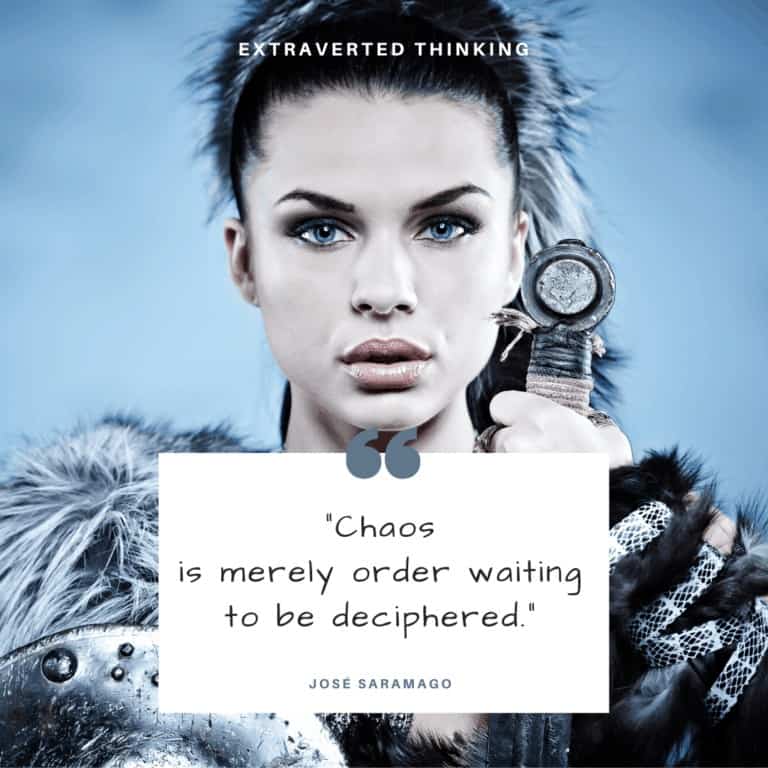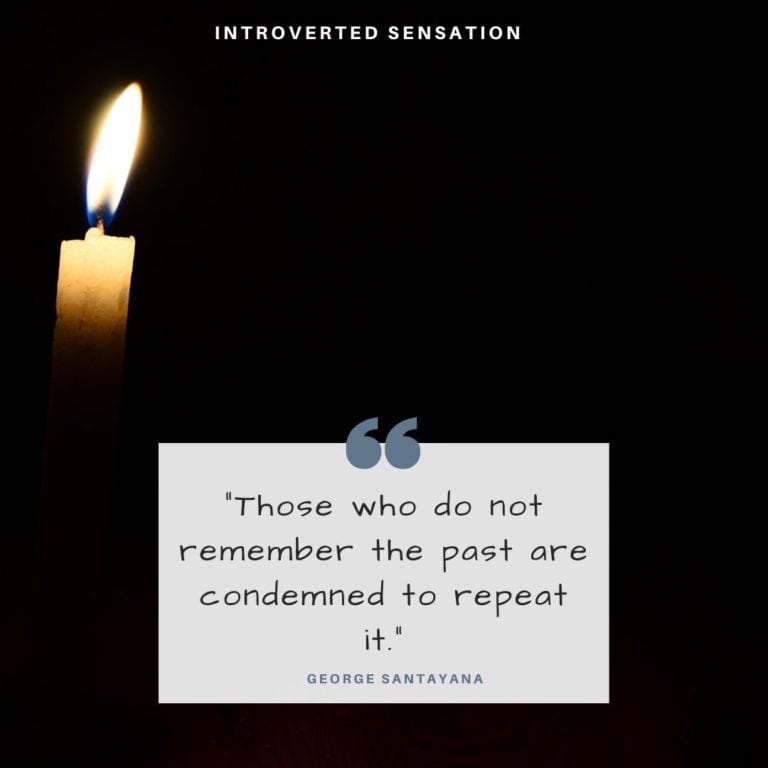What’s the character kind of our present U.S. Vice President, J.D. Vance? This can be a query I’ve been requested at the least 100 occasions within the final eight months, so I’m lastly (after studying dozens of articles and watching waaaay too many interviews) giving this a go.
Earlier than we get into the center of this text, I wish to be clear. I’ve robust private opinions about JD Vance—his story, his politics, and the way in which he’s navigated public life. However I’m setting these opinions apart right here. My aim is to supply a good, factual, and thorough examination of who he’s, how he’s modified, and what his character kind is perhaps.

I’ve been working within the subject of character psychology for over a decade, learning how individuals’s core values, social environments, and cognitive preferences form their lives. As an MBTI® practitioner, I’ve seen firsthand how these forces will help—or hinder—individuals as they attempt to construct genuine lives. Vance’s story is a case research in how upbringing, setting, and shifting social tides can pull an individual in competing instructions.
I’ve additionally learn Hillbilly Elegy and plenty of of his different writings, and I’ll be drawing on these sources as we attempt to perceive the person behind the headlines. Let’s dig in.
Undecided what your character kind is? Take our character questionnaire right here. Or you’ll be able to take the official MBTI® right here.
A Difficult Determine in American Politics
JD Vance is likely one of the most talked-about—and polarizing—figures in American politics at this time. As vice chairman, he stands on the middle of the MAGA motion’s newest iteration: a mix of financial populism and cultural conservatism. However earlier than he turned a politician, he was a best-selling memoirist whose guide, Hillbilly Elegy, supplied a window into the struggles of white working-class America.
That guide—and the story it advised—catapulted him to fame. It was a nuanced portrait of a younger man rising up in poverty and chaos, studying to navigate a world that always felt stacked in opposition to him. And it was additionally an indictment of the tradition he was raised in, a tradition he described as trapped by fatalism and resentment.
Since then, Vance has reinvented himself greater than as soon as: from disillusioned veteran to Yale Legislation graduate, from Silicon Valley enterprise capitalist to political firebrand. He’s been a Trump skeptic and a Trump loyalist, a critic of elite hypocrisy and an operator inside those self same elite circles.
Understanding JD Vance means all these layers. It means seeing the private alongside the political—and asking how they form one another. As a result of Vance’s journey isn’t nearly one man’s ambition. It’s concerning the broader forces of sophistication, tradition, and id that proceed to tug on the soul of the nation he claims to symbolize.
Early Life and Upbringing
Vance’s story begins in Middletown, Ohio, however it’s rooted deeper within the hills of jap Kentucky—a spot he’s described as carrying a “Scots-Irish hillbilly” id. “To grasp me,” he wrote in Hillbilly Elegy, “you could perceive that I’m a Scots-Irish hillbilly at coronary heart.” That id formed each a part of his childhood.
His household life was marked by turbulence and trauma. His mom, Bev, struggled with dependancy, and a rotating forged of stepfathers and boyfriends got here and went. Within the chaos of that world, it was his grandmother, Mamaw, who offered a way of stability and who taught him—typically in fierce, no-nonsense methods—what it meant to outlive.
For Vance, survival wasn’t nearly enduring poverty. It was concerning the mentality of his group. He wrote, “There’s a cultural motion within the white working class responsible issues on society or the federal government, and that motion positive aspects adherents by the day.” However he additionally understood how that mentality was born: generations of financial decline, manufacturing unit closures, and damaged guarantees.
He carried that understanding with him as he moved by way of highschool—studying to work arduous, to push himself, to consider he may do greater than what his environment advised him he may. “For those who consider that arduous work pays off, then you definitely work arduous,” he mirrored. “For those who assume it’s arduous to get forward even whenever you attempt, then why attempt in any respect?”
That query—why attempt?—adopted him from Middletown to the Marines. And within the Marines, he discovered his first actual escape. He wasn’t in fight; he served as a public affairs Marine in Iraq, studying Christopher Hitchens and Ayn Rand on dusty airbases and questioning the warfare he’d as soon as believed in. The expertise left him disillusioned, however it additionally gave him self-discipline—a way that, as he wrote later, “transformation is tougher than a second.”
Vance’s journey from a chaotic house in Ohio to a disciplined Marine’s life in Iraq was the primary of many pivots. And it might set the tone for the whole lot that adopted: a lifetime of fixed movement, looking for order in a world that always refused to offer it.
Training and Early Ideological Improvement
When JD Vance returned from Iraq, he was decided to chart a brand new course. He enrolled at Ohio State College, ending his diploma in political science and philosophy in simply two years—an virtually frantic tempo that mirrored his drive to outrun the previous.
He took that drive straight to Yale Legislation College in 2010, a spot he as soon as described as feeling like a world other than something he’d ever identified. “It’s a much bigger leap from southwestern Ohio to Yale Legislation College than from a whole lot of overseas international locations to Yale” stated Atlantic journalist George Packer.
At Yale, he encountered mentors who pushed him additional: Amy Chua, famously often called the “Tiger Mother,” and Peter Thiel, the billionaire enterprise capitalist and contrarian. Thiel’s discuss on the stagnation of American society struck a chord. “You’re working like loopy for meaningless jobs,” Thiel warned, and Vance later wrote that this was “essentially the most important second” of his Yale years. It compelled him to ask: “Was I obsessive about achievement in itself, not as an finish to one thing significant, however to win a social competitors?”
His relationship with Usha, a Yale undergraduate and the daughter of Indian immigrants, additionally modified the way in which he noticed the world—and himself. She turned what he referred to as his “Yale spirit information,” serving to him navigate the elite social panorama he discovered each fascinating and alien. “She had plans for him,” journalist George Packer noticed. “She had spreadsheets and whiteboard directions.”
However at the same time as he absorbed new concepts, Vance was nonetheless tied to his roots. He by no means stopped fascinated by Middletown, or the cultural divides he noticed rising sharper yearly. As he put it, “You’ll be able to depart a hometown, however it by no means actually leaves you.” His mental curiosity and private ambition have been always in stress with the a part of him that also felt like the child from Ohio, making an attempt to show he belonged.
It was this combine—of restlessness and loyalty, of skepticism and hope—that will outline the subsequent chapter of his life: one foot in elite establishments, the opposite nonetheless planted within the battered soil of Appalachia.
In 2016, Vance printed Hillbilly Elegy, a memoir that turned each a bestseller and a lightning rod. Praised by some as a searing window into working-class struggles, and critiqued by others for flattening the complexity of poverty into private accountability tropes, the guide catapulted him into nationwide relevance. Whether or not you noticed it as sociological gold or political oversimplification, it made one factor clear: Vance had change into a bridge between two worlds—and generally a battleground for them.
He went on to work in enterprise capital, launch a nonprofit geared toward lifting up struggling communities, and finally, pivot sharply into politics.
As of now, Vance continues to navigate life on the intersection of energy and populism, custom and ambition. His trajectory is complicated, and at occasions contradictory—and perhaps that’s why he nonetheless sparks such fascination—as a result of for all of the sharp strains he attracts publicly, internally, the story continues to be being written.
J.D. Vance’s Myers-Briggs® Character Kind
What’s J.D. Vance’s Myers-Briggs®Character Kind?
My guess as an MBTI® practitioner and character profiler is ESTJ. He’s outcome-focused, pragmatic, grounded in his previous, and a transparent communicator. Hold studying to get a clearer concept of why I feel that is Vance’s best-fit character kind.
JD Vance comes throughout as outwardly engaged, assertive, and energized by dialogue and interplay—traits that align with Extraversion.
- His means to shortly learn and reply to social dynamics—from elite Ivy circles to rural populist audiences—exhibits an ease with exterior engagement and crowd dynamics, an indicator of many Extraverts.
- In debates, he exhibits up as clear, composed, and people-focused, which demonstrates not solely verbal confidence however the means to form his tone to the setting—one thing extraverts are typically extra comfy doing.
- In school and regulation college, Vance was broadly described as well-liked and socially adept, even in elite areas the place his background didn’t match his friends’. In accordance with associates at Yale, “He got here into Yale and was instantly well-liked, charismatic, clever.” Regardless of coming from a working-class, non-Ivy background, he didn’t present hesitation or social withdrawal—he tailored shortly and thrived in outward-facing environments.
S – Sensing
Whereas Vance dabbles in summary political principle and philosophy, his decision-making and reflections are deeply rooted in concrete expertise, private reminiscence, and historic continuity—robust indicators of Sensing.
- He often references particular recollections from childhood, army service, or conversations from years previous to help his factors:
“After I was in regulation college, I used to be on a prepare between New York and New Haven… this younger lady will get on the prepare… I keep in mind watching her and pondering, ‘That is an unbelievably affected person mom.’”
For those who watch his interviews (which I did, at the least 30 hours of interviews), you’ll see repeatedly that he backs up his claims with examples from his previous. These examples form his worldview to an excessive diploma.
He makes use of these lived experiences as ethical reference factors, a key trait of Introverted Sensing (Si) preferences.
- His admiration for Catholicism is tied not simply to doctrine however to the stability and custom it represents:
“The soundness of an establishment that has endured for 2000 years… I like the concept of being a part of one thing that’s endured for a lot of generations.”
- He typically attracts consideration to disruptions of custom as ethical issues, like his frustration with anti-child attitudes and instability in trendy life.
This desire for grounding current issues in previous patterns or values, slightly than spinning out novel potentialities, leans Sensing over Instinct.
T – Pondering
Vance’s decision-making tends to be logic-forward, structured, and oriented towards cause-effect reasoning. His arguments are usually framed round what is smart, what’s environment friendly, or what’s going to present in his view the very best final result for giant swaths of the American individuals.
- His commentary is commonly centered on coverage practicality: tariffs, household incentives, cost-of-living challenges, regulation of company energy.
- He critiques the performative nature of recent media and id politics, pointing as an alternative to outcomes and buildings:
“I had succeeded at climbing the ladder of meritocracy, however I discovered the values deeply missing.”
This quote is one thing that aligns very a lot with Extraverted Pondering and Introverted Feeling, which we’ll get into later on this article.
Vance is a powerful communicator, however he isn’t summary or wandering. His line of reasoning is evident, ordered, and straightforward to observe, even when it’s controversial. That type of linearity tends to replicate Te greater than Ti, which regularly sounds extra inside, nuanced, and recursive.
J – Judging
All the things about Vance’s life-style, targets, and communication type aligns with Judging preferences: he’s structured, decisive, proactive, and forward-moving.
- His profession path exhibits a gradual and strategic climb: Marine Corps → OSU → Yale Legislation → enterprise capital → public mental → senator → vice chairman. There’s a way of goal-orientation and follow-through that typifies J-types.
- He often references his want for stability—in private life, society, and custom:
“The American dream to me was by no means make some huge cash… it was having what me and Usha have proper now. I wished to lift our youngsters in stability.”
Cognitive Readability – How JD Vance Reveals Te and Si
Understanding JD Vance by way of the lens of cognitive capabilities gives even deeper perception into the way in which he processes data, makes selections, and communicates his values. For those who’re undecided what cognitive capabilities are you’ll be able to learn my introductory article right here. Primarily, although, cognitive capabilities are the constructing blocks of your character kind. The letters give us the floor label whereas the cognitive capabilities present us the underlying {hardware} of how your thoughts works.
The 2 capabilities that stand out most clearly in his conduct, language, and life trajectory are Extraverted Pondering (Te) and Introverted Sensing (Si)—the dominant and auxiliary capabilities of the ESTJ kind.
Let’s have a look at every one and the way they present up constantly in his phrases and actions.


Te is an outward-facing, efficiency-driven operate that prioritizes outcomes, programs, and clear outcomes. For JD Vance, this operate exhibits up in the way in which he communicates, buildings his arguments, and strikes by way of the world.
Proof of Te in Vance:
- Clear, organized communication: Whether or not he’s debating, talking at rallies, or giving interviews, Vance expresses his concepts in a direct, results-focused approach. His line of reasoning tends to be linear, grounded, and straightforward to observe—even when the concepts is perhaps “politically incorrect.”
- Consolation with establishments and programs: Vance doesn’t reject construction—he strikes by way of it and rises inside it. From the Marines to Yale Legislation to enterprise capital to the Senate and now the Vice Presidency, he has constantly climbed formal hierarchies.
- Selections based mostly on exterior metrics: Even when reflecting on household, Vance typically grounds his values in measurable or societal penalties. On child-rearing, for instance, he doesn’t merely say it’s fulfilling—he references broader impacts:
“Spiritual of us are a lot happier. Common church attendees commit fewer crimes, are in higher well being, dwell longer, earn more money, drop out of highschool much less often, and end school extra often than those that don’t attend church in any respect.”
This data-based protection of values is quintessentially Te: justify beliefs by way of proof, not simply emotion.
Let me use myself for instance right here, as a result of I additionally use Extraverted Pondering.
I’m an agnostic and my husband is a Christian. I agree with Vance concerning the measurable constructive outcomes of going to church having studied the impacts for a few years. So I help my husband and my churchgoing kids of their religion as a result of, no matter what I personally consider, if the online advantage of them going to church and having religion is bigger than the unfavourable implications of a probably faith-disrupted family, it looks as if simple arithmetic to me to help that.
You’ll typically discover Extraverted Pondering varieties causes and values and contemplating the empirical proof or observable outcomes, generally moreso than their private emotional intestine emotions.
Introverted Sensing (Si): Previous as Compass, Custom as Anchor


Introverted Sensing is targeted on internalizing previous experiences, traditions, and confirmed frameworks. It grounds an individual’s worldview in what has labored earlier than and infrequently creates a powerful connection to stability, reminiscence, and private historical past. That is deeply embedded in Vance’s worldview.
Proof of Si in Vance:
- Frequent invocation of childhood and household: Vance virtually by no means makes a degree with out referencing one thing from his private historical past. Whether or not he’s speaking about poverty, trauma, religion, or coverage, he tends to tug from his previous to contextualize the current.
“To grasp me, you could perceive that I’m a Scots-Irish hillbilly at coronary heart.”
“You’ll be able to depart a hometown, however it by no means actually leaves you.”
This sort of identity-rooted reflection is a textbook Si sample: decoding current selections by way of the filter of lived expertise.
- Worth of stability and custom: Vance’s choice to transform to Catholicism was not simply non secular—it was framed explicitly by way of historic endurance and ethical construction.
“The soundness of an establishment that has endured for two,000 years…”
That pull towards one thing historic and dependable displays an Si want to root oneself in continuity and collective reminiscence, not fleeting traits.
- Sample recognition grounded in historical past: He typically critiques trendy tradition and coverage by evaluating them with previous norms. His assertion that America has change into “pathologically anti-child” attracts not simply from ethical judgment however from distinction—what issues was once like. He tracks decline and alter over time, an indicator of Si.
- Emotional reminiscence and sensory recall: He recollects tales in vivid, concrete element—from observing a mom on a prepare to scenes from his chaotic childhood. These aren’t summary analogies—they’re actual moments which have change into inside reference factors for what issues to him and the way he sees the world.
Te-Si in Apply: The Driving Sample
Collectively, Te and Si create a character that’s centered on implementing dependable programs to deliver order and stability to life—each personally and politically. It’s the operate pair that asks: “What has labored earlier than, and the way can we apply it successfully now?”
This explains why Vance:
- Champions conventional household buildings
- Embraces faith with institutional roots
- Distrusts chaotic social experimentation
- Frames cultural points as issues of dysfunction and decline
- Speaks with structured logic greater than speculative principle
Even when he adapts to shifting political winds, he does so with a transparent hierarchy in thoughts—strategizing based mostly on outcomes, not inside evaluation or summary beliefs.


For a character kind like ESTJ, Extraverted Instinct (Ne) sits within the tertiary place—that means it’s not a driving pressure, however it may be a supply of curiosity, play, and exploration, particularly when the individual feels assured or secure. In JD Vance, we see this operate emerge as a philosophical and rhetorical undercurrent—one that enables him to dabble in “what if” pondering, query prevailing narratives, and check out concepts that don’t essentially match into the standard conservative mildew.
Ne within the tertiary place typically helps an individual’s dominant and auxiliary capabilities in shocking methods. For Vance, this seems to be like utilizing summary theories or speculative frameworks to justify, reinforce, or re-evaluate the extra sensible and tradition-focused goals of his Te-Si core.
A Curious Thoughts Beneath the Pragmatist
At the same time as Vance grounds his public id in construction, values, and stability, he has lengthy proven an curiosity in contrarian, conceptual frameworks. At Yale, one of many defining moments in his mental life was listening to Peter Thiel discuss societal stagnation and elite competitors:
“You’re working like loopy for meaningless jobs. You’re competing with one another. It’s cutthroat competitors, and also you’ll discover that it’s all for a type of style of ashes in your mouth.”
Vance later referred to as this “essentially the most important second” of his time at Yale—a telling signal that he’s not solely drawn to philosophical provocateurs however can have his trajectory meaningfully altered by big-picture “what’s unsuitable with society” kind questions. That type of Ne activation—taking in a brand new framework and letting it destabilize an previous perception—is basic tertiary Ne: not always driving his selections, however providing pivotal reframes when one thing clicks. It additionally speaks to his inferior Introverted Feeling; the will for that means and alignment with values over pure financial outcomes.
Philosophy as a Instrument for Recalibration
Vance has referenced a spread of philosophical and ideological influences through the years—René Girard, Patrick Deneen, Curtis Yarvin, Rod Dreher, even Ayn Rand in earlier years. This willingness to soak up and test-drive large concepts isn’t the identical as dominant Ne, which thrives on infinite reinvention. In Vance’s case, Ne appears to operate like a toolkit: he samples paradigms, assessments whether or not they resonate along with his internal narrative or societal observations, after which both integrates them or strikes on.
“He’s a person who has undergone an evolution—not simply politically, however spiritually and intellectually. He reads deeply. He considers concepts most politicians would by no means contact.”
— *Rod Dreher, writer of The Benedict Choice
“If there’s one thing attention-grabbing happening, and I wish to bounce concepts off of a really fascinating and educated individual, I’ll give him a name.” – JD Vance, on his relationship with Peter Thiel
“I had spent years pondering that schooling was the way in which out of poverty. Then Thiel got here alongside and challenged the very worth system I’d purchased into. I needed to step again and assume: What if he’s proper?”
— JD Vance, paraphrased from podcast interviews and speeches
“What If” Questions in Politics
Vance has additionally demonstrated philosophical curiosity in interviews, typically drifting into speculative territory:
- He’s questioned whether or not the U.S. ought to abandon Enlightenment liberalism in favor of communal spiritual values.
- He’s overtly explored what it might imply to offer political leaders extra direct management over financial coverage, asking,
“In a democracy, it is best to ask your self why it’s not ideally suited for the political management to have management over many of the questions within the nation.”
These sorts of rhetorical “what ifs” are Ne surfacing by way of a Te-Si construction: difficult current fashions not for the fun of the summary, however in quest of a system that feels (to them) extra cohesive, extra morally grounded, and more practical.
Inferior Introverted Feeling – The Tug of Interior Values


If Extraverted Pondering (Te) is about creating programs that work effectively within the exterior world, Introverted Feeling (Fi) is its mirror reverse—involved with internal ethical alignment, emotional authenticity, and particular person conscience. For ESTJs, Fi sits within the inferior place, that means it’s typically much less aware, tougher to entry, and tends to floor in moments of stress, transformation, or deep reflection.
Nevertheless it’s nonetheless there. And in JD Vance, inferior Fi performs a quiet however compelling position—driving his seek for that means, his difficult relationship with ethical beliefs, and his emotional reactions to perceived injustice or betrayal.
Fi Struggles and Sensitivities
Not like dominant Fi customers (like INFPs or ISFPs), who lead with their values and might simply articulate what feels “proper” to them, inferior Fi in ESTJs typically exhibits up in two key methods:
- An unconscious or emotionally reactive attachment to private values, particularly round loyalty, equity, or integrity.
- A delayed however highly effective seek for id or ethical grounding, typically after an extended interval of outward achievement.
JD Vance’s total arc—from traumatized youngster to Ivy League lawyer to tradition warrior—accommodates indicators of Fi looking for its footing beneath the extra seen Te/Si/Ne construction.
Quotes and Conduct Suggesting Inferior Fi:
1. The Flip Towards Religion and Interior That means
Vance has overtly stated that his return to faith wasn’t nearly perception—it was about grounding, id, and ethical readability:
“I wished to be virtuous. That’s what led me again to Christianity.”
This can be a surprisingly intimate assertion for somebody whose public picture is commonly sharp and confrontational. It’s not framed as “helpful” or “efficient” (Te language), however as one thing that glad a eager for internal rightness—a basic Fi theme.
2. Sturdy Emotional Responses to Ethical Failure or Misrepresentation
Vance has expressed frustration—generally intensely—when he feels his views or character are misrepresented:
“What actually bothers me concerning the cat girl remark is that it distracted from the core level I used to be making…”
That phrase—“what actually bothers me”—displays how inferior Fi customers can really feel emotionally rattled when their deeper intent is misinterpret or flattened, particularly after they’re making an attempt (awkwardly or not) to precise a honest worth judgment.
When Fi is Threatened: Defensive Idealism and Overcorrection
Inferior Fi in ESTJs can generally present up as:
- Overly sentimental defenses of issues they affiliate with private id (household, religion, nation).
- Ethical rigidity or reactivity when accused of hypocrisy or insincerity.
- Idealization of their very own emotional development, particularly in hindsight.
Vance’s fiery protection of household values and youngsters—whereas politically strategic—additionally seems deeply private. His emotional tone shifts when he talks about parenting, his spouse Usha, or his children:
“Bringing life into the world has completely reworked the way in which that I take into consideration myself, the way in which I take into consideration my spouse.”
That type of transformation—from exterior striving to inward connection—is a trademark of creating Fi. It doesn’t change Te or Si, however it slowly humanizes and complicates them.
Childhood Stress – Between Doing Effectively and Being Effectively
JD Vance’s youth was marked by contradiction. On one hand, he was a wise, succesful, and bold boy with clear potential. On the opposite, he was raised in a world of emotional chaos, financial hardship, and inconsistent position fashions. And it’s on this context that we start to see the lifelong tug-of-war between Te and Fi—between the will to attain and the determined hope to really feel entire.
Te’s Early Rise: Management Amid Chaos
From a really younger age, Vance understood that achievement was survival.
His mom’s instability—fueled by dependancy and a collection of chaotic relationships—made consistency uncommon. However his grandmother (“Mamaw”) instilled in him the concept that getting out, getting forward, and getting management have been non-negotiable. Te was his lifeline.
“By no means be like these f****** losers who assume the deck is stacked in opposition to them,” Mamaw instructed him. “You are able to do something you wish to.” – Hillbilly Elegy
College efficiency turned Vance’s refuge. Army construction (he later joined the Marines) gave him exterior order. Yale Legislation was the promised land of competence and respect.
However beneath the Te-driven ascent, one thing quieter was aching.
Fi’s Quiet Ache: Identification, Belonging, and the Value of Climbing
Vance didn’t simply need success. He wished that means. He wished to grasp who he was beneath all of the efficiency, and whether or not somebody like him may ever be really seen, not simply tolerated or polished for elite approval.
“I had succeeded at climbing the ladder of meritocracy, however I discovered the values deeply missing.”
That is the place inferior Fi begins to press in opposition to his Te. Fi whispers: What is that this for? Do you even consider in these programs you’ve mastered? Do you’re feeling good in your personal pores and skin right here?
The deeper into elite areas he went, the extra disconnected he felt—not simply culturally, however spiritually.
“I keep in mind being at Yale and questioning whether or not success meant abandoning who I used to be.”
Fi doesn’t care about status. It cares about alignment—being loyal to your inside compass, even when nobody else sees or approves. And for ESTJs, this operate is commonly the final to develop. So at first, they chase success as a result of they assume it should give them validation or peace. However for Vance, like many ESTJs, that pursuit hit an existential wall.
The Stress in Movement
All through Hillbilly Elegy, and in interviews since, Vance expresses this push-pull clearly:
- He praises self-discipline, arduous work, and upward mobility (Te).
- However he additionally circles again to the hollowness of success with out roots, religion, or emotional coherence (Fi and Si).
“What I wished wasn’t a giant home or a elaborate job. I wished stability. I wished one thing I by no means had as a child.”
That phrase—stability—echoes each Si and Fi: the protection of the identified, and the emotional security of consistency, belonging, and integrity.
Developmentally: A Character in Recalibration
What we’re seeing in Vance’s story is a basic ESTJ developmental arc:
- Te/Si dominance in youth, used to impose management and acquire standing.
- A midpoint awakening the place success feels empty or disconnected.
- A gradual integration of Fi, typically catalyzed by life occasions (like parenting, religion, or burnout), the place the individual asks:
Is that this actually who I wish to be? Is that this what issues most?
What Do You Suppose?
Typing public figures is all the time messy, particularly after they’re nonetheless evolving — and particularly after they provoke robust emotions. However based mostly on what we’ve explored right here, ESTJ looks as if a stable match for JD Vance.
However I’d love to listen to your ideas:
Do you see ESTJ in JD Vance? Or do you assume one other kind suits higher?
What patterns, quotes, or moments stood out most to you?
Let me know within the feedback — simply preserve it respectful and type-focused. We’re not right here to politically bully anybody!

